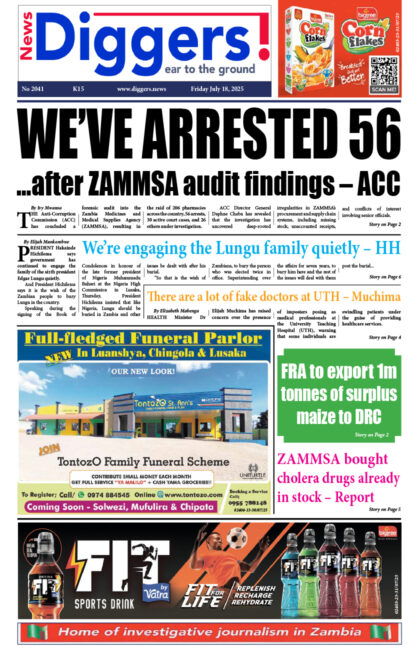Economist Professor Oliver Saasa has warned Zambians to brace themselves for less social sector spending because government is prioritizing debt service repayments to avoid defaulting.
In an interview, Prof Saasa said the country’s debt was like a cancer that had reached a point of amputation, and that citizens needed to live through the pain by experiencing less resources being allocated to critical social sectors, such as healthcare and education.
“…And debt defaulting, that is really what will graduate us into a debt crisis. A debt crisis means we are in deep trouble because nobody will be willing to give us money. If we borrow, it will be through our nose! Investors will run away, everything will just grind to a halt, especially that up to now, we don’t have a programme with the IMF. So, avoidance of a debt crisis is what is happening, but then, the problem is not really with the current change in terms of the (K9.8 billion) supplementary budget, the problem is more to do with something that has happened before that needs to be addressed,” Prof Saasa observed.
“Unfortunately, it’s like somebody has cancer, you avoid treatment and wait until the only option that is remaining is to amputate, then you say ‘should I amputate?’ That is asking the wrong question. The problem is that why didn’t you move earlier after diagnosis, to have early treatment because you are now faced with a situation where the options that are available are painful and that is where we are now.”
He added that he and other professionals had warned government about the breakneck speed it was contracting sovereign debt.
“Many people, including myself, have been singing loudly that you see the speed at which we are contracting sovereign debt would see us in a situation where once we are distressed, we will do the unimaginable and one of them is curtailing social sector spending and that is what is happening now. People must see the link between the advice we have been advocating over the years, and I am not the only professional who has added their voice to this and that is what is happening now. Perhaps the beauty is that we have a new Minister of Finance (Dr Bwalya Ng’andu) in whom people have confidence, including myself, and that we can start opening up opportunities to discuss. At the moment, we are at a situation where amputation is likely until certain things are done and it’s going to be painful,” cautioned Prof Saasa.
“Nobody would want a situation where we minimize our responsibilities to social sector spending. If you look at the 6 point something billion (K6.4 billion) in terms of supplementary budget, a significant portion of that has been, mind you, this is not extra money, and it’s actually rejigging the money that is already there in the (2019) budget. A substantial part of that is coming from social sector spending, we are talking about health; we are talking about education; we are talking about those sectors, but you see the Minster’s hands were tied, he comes in and finds that if we do not actually re-route this money away from social sector spending, we are going to default.”



















